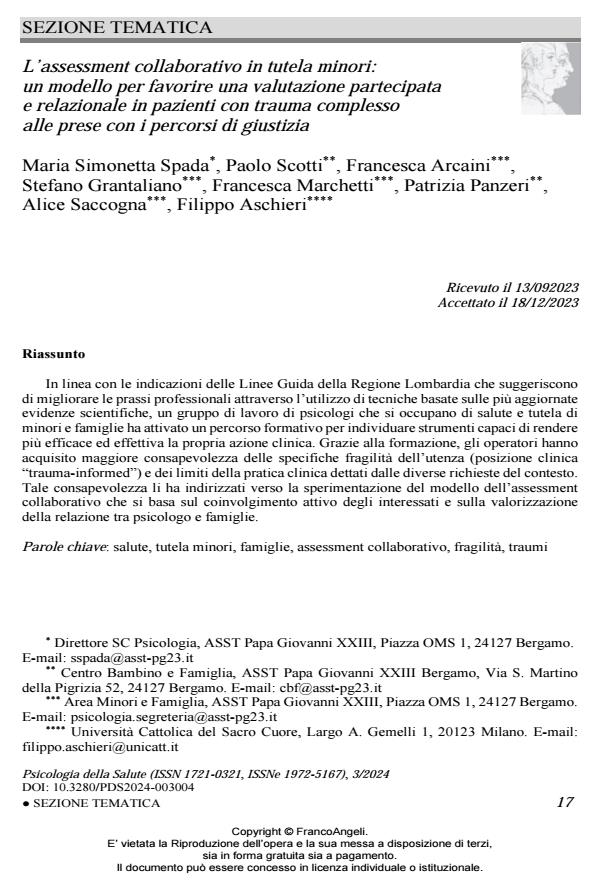Collaborative assessment in child protection: a model to foster participatory and relational assessment in patients with complex trauma struggling with justice pathways
Journal title PSICOLOGIA DELLA SALUTE
Author/s Maria Simonetta Spada, Paolo Scotti, Francesca Arcaini, Stefano Grantaliano, Francesca Marchetti, Patrizia Panzeri, Alice Saccogna, Filippo Aschieri
Publishing Year 2024 Issue 2024/3
Language Italian Pages 15 P. 17-31 File size 261 KB
DOI 10.3280/PDS2024-003004
DOI is like a bar code for intellectual property: to have more infomation
click here
Below, you can see the article first page
If you want to buy this article in PDF format, you can do it, following the instructions to buy download credits

FrancoAngeli is member of Publishers International Linking Association, Inc (PILA), a not-for-profit association which run the CrossRef service enabling links to and from online scholarly content.
The Guidelines of the Lombardy Region mandate to improve professional practices through the use of techniques based on the most up-to-date scientific evidence. To meet this requirement a team of professionals from child and family protection services seek for psycho-logical techniques to enhance the effectiveness of their clinical practice. Through a three-years long training the professionals strengthened awareness of the specific fragility of the users (“trauma-informed” clinical practice) and of the context-related limits and contradictions of their practice. Based on these competences the team experimented the collaborative assessment model, which is grounded in the active involvement of the interested parties and on the en-hancement of the relationship between the psychologist and the families.
Keywords: health, child protection, families, collaborative assessment, fragility, trauma
Maria Simonetta Spada, Paolo Scotti, Francesca Arcaini, Stefano Grantaliano, Francesca Marchetti, Patrizia Panzeri, Alice Saccogna, Filippo Aschieri , L’assessment collaborativo in tutela minori: un modello per favorire una valutazione partecipata e relazionale in pazienti con trauma complesso alle prese con i percorsi di giustizia in "PSICOLOGIA DELLA SALUTE" 3/2024, pp 17-31, DOI: 10.3280/PDS2024-003004